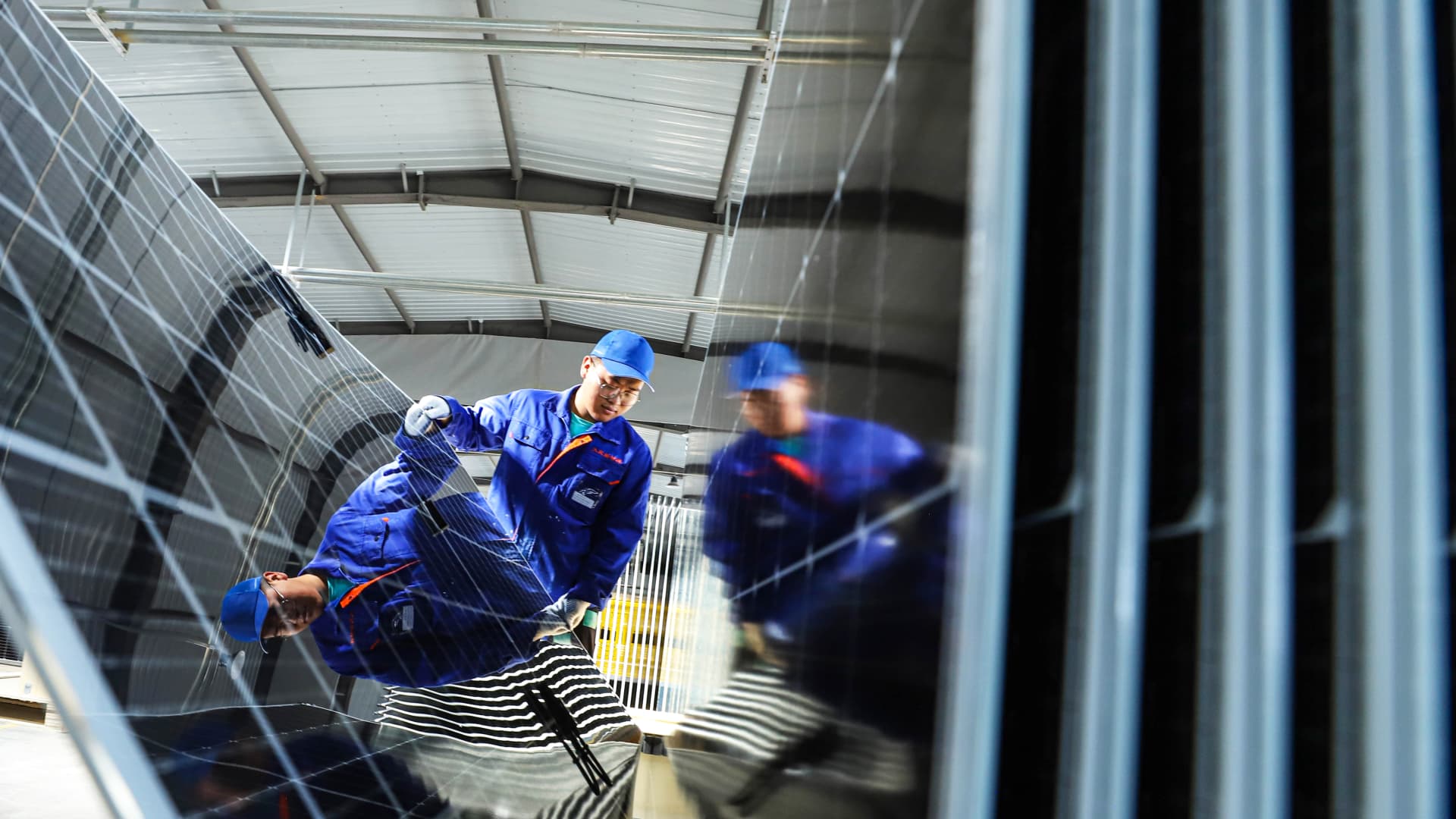A coalition of U.S. solar manufacturers petitioned the federal government on Wednesday to impose tariffs on imports from four Southeast Asian nations, alleging that the countries are flooding the U.S. market with cheap products that threaten the domestic industry.
First Solar and six other manufacturers allege that companies in Cambodia, Malaysia, Thailand and Vietnam are dumping solar cells on the U.S. market at prices below the cost production or are benefiting from subsidies that leave domestic manufacturers unable to compete.
The other six parties to the petition are Convalt Energy, Meyer Burger, Mission Solar, Qcells, REC Silicon and Swift Solar.
The U.S. manufacturers have asked the International Trade Commission to issue a determination that the domestic solar industry has been harmed. They are requesting that the Commerce Department impose tariffs on solar cell imports from the four countries as a remedy.
First Solar shares rose about 1.5% on the news.
The companies that would be targeted by the ITC and Commerce investigations are primarily headquartered in China. The U.S. manufacturers allege the Chinese government is providing subsidies through Beijing’s Belt and Road Initiative to manufacturers in Cambodia, Malaysia, Thailand and Vietnam.
“This petition is not asking for special treatment from the US government,” Tim Brightbill, the lead attorney in the case, told reporters on a call Tuesday. “It is simply asking that our current trade laws be enforced.”
Tariffs have divided the the U.S. solar industry. While manufacturers such as First Solar support tariffs on some imports, the Solar Energy Industries Association opposes them, arguing trade barriers raise prices, reduce installations and hurt jobs.
Solar panel prices plummeted nearly 50% globally in 2023 compared to the prior year as manufacturing capacity has tripled since 2021, according to a January report from the International Energy Agency. China’s market share of global supply chains is between 80% and 95%, according to the report.
The global supply glut led to a 45 gigawatt stockpile of solar modules in the U.S. at the end of 2023, nearly double forecast installations for 2024, according to the IEA.
Treasury Secretary Janet Yellen told CNBC earlier this month that the Biden administration would not rule out imposing tariffs on subsidized clean energy exports from China.
The ITC and Commerce Department investigations will take about 12 months to conclude, Brightbill said. The soonest tariffs could be imposed is after the Commerce Department makes a preliminary determination, which will take about four to six months, he said.
